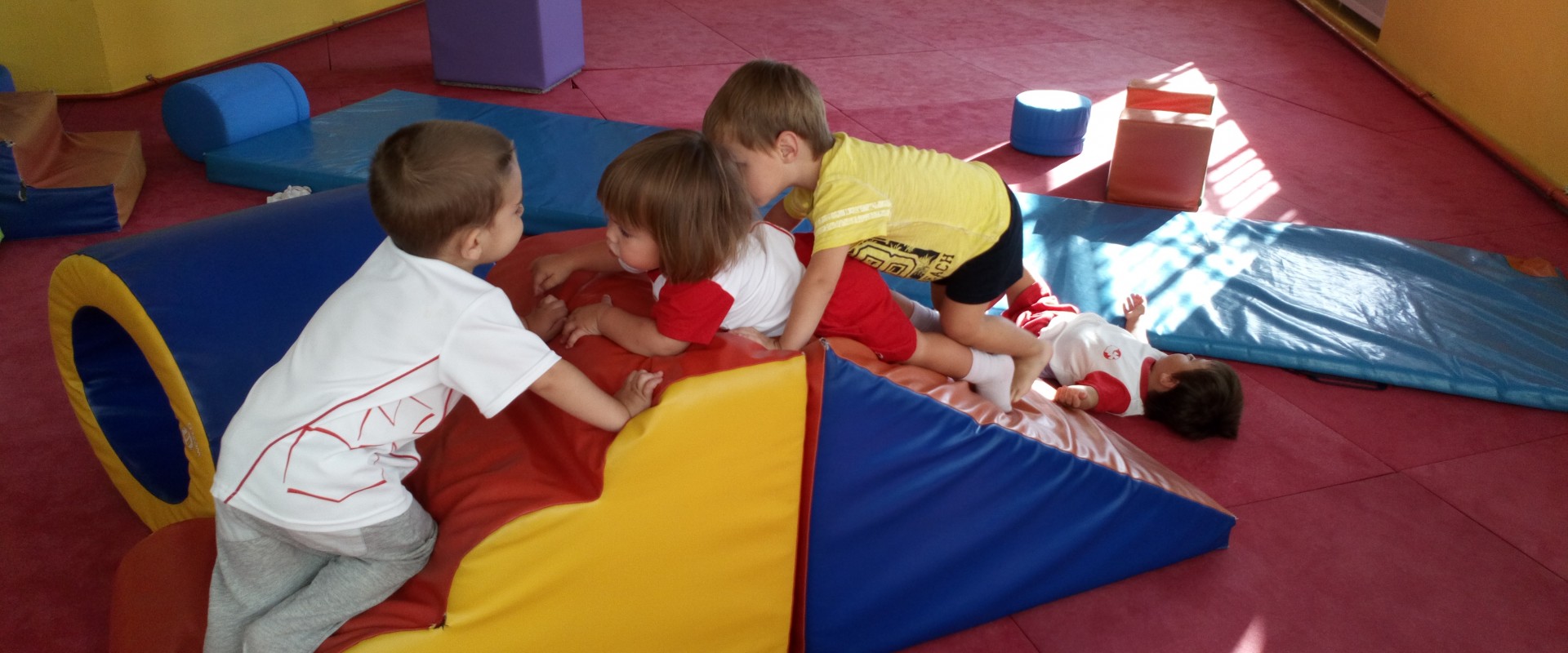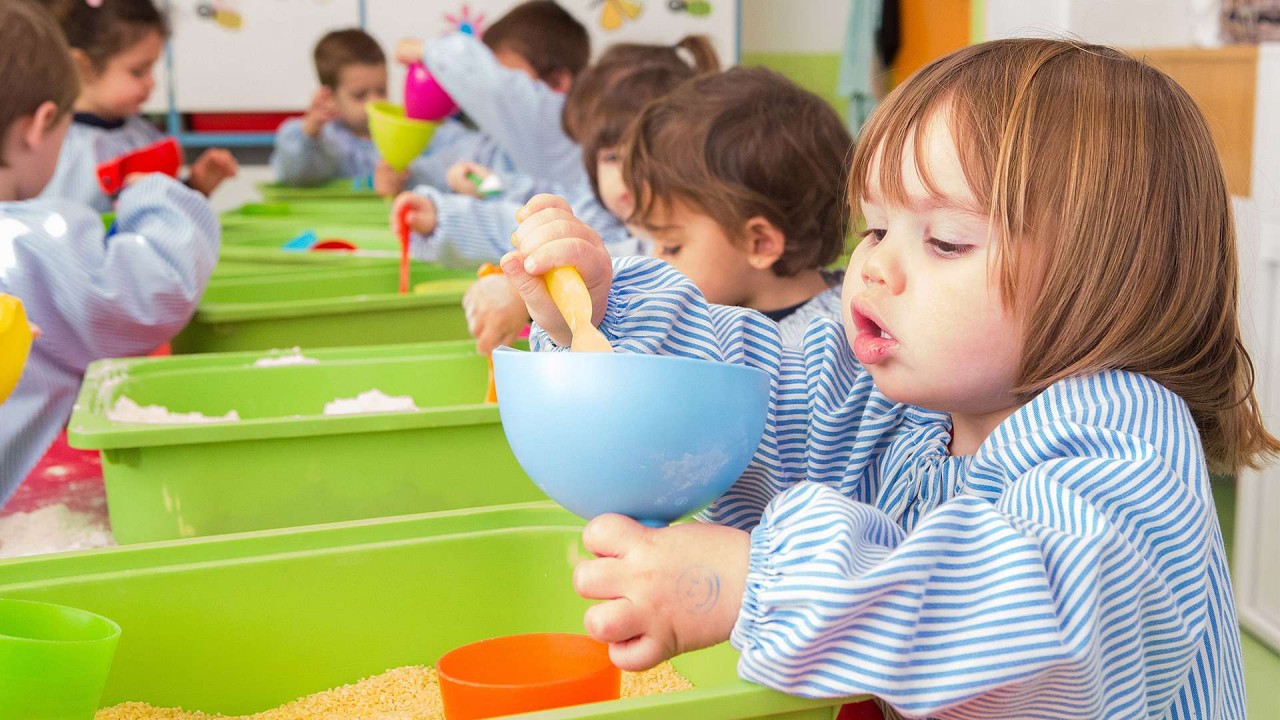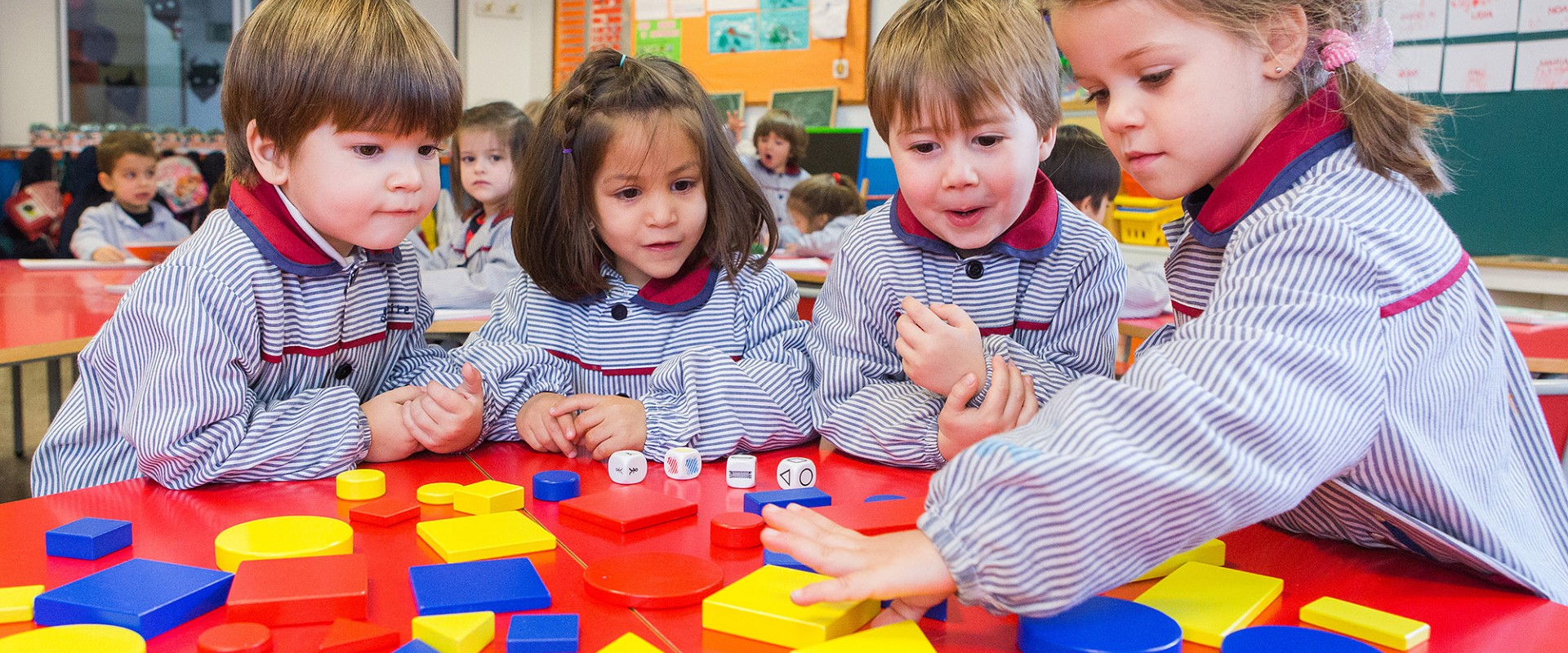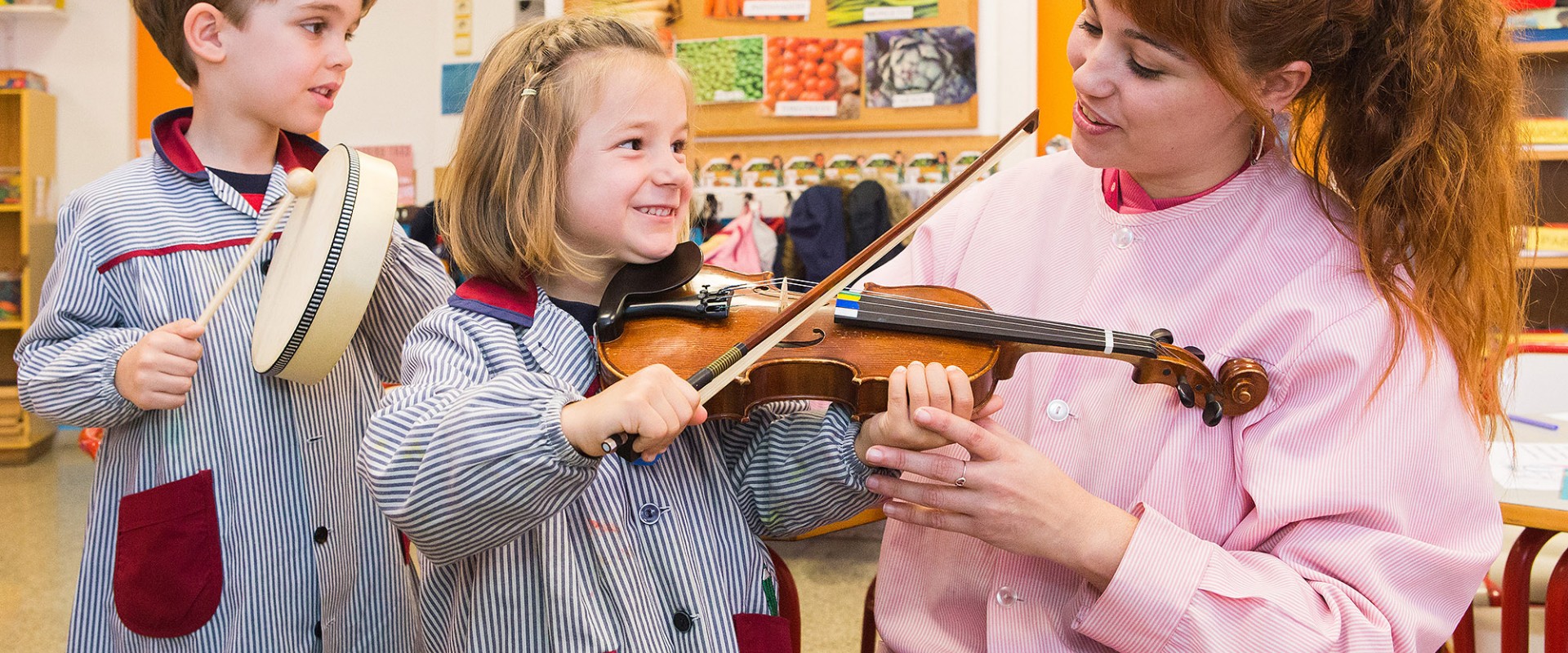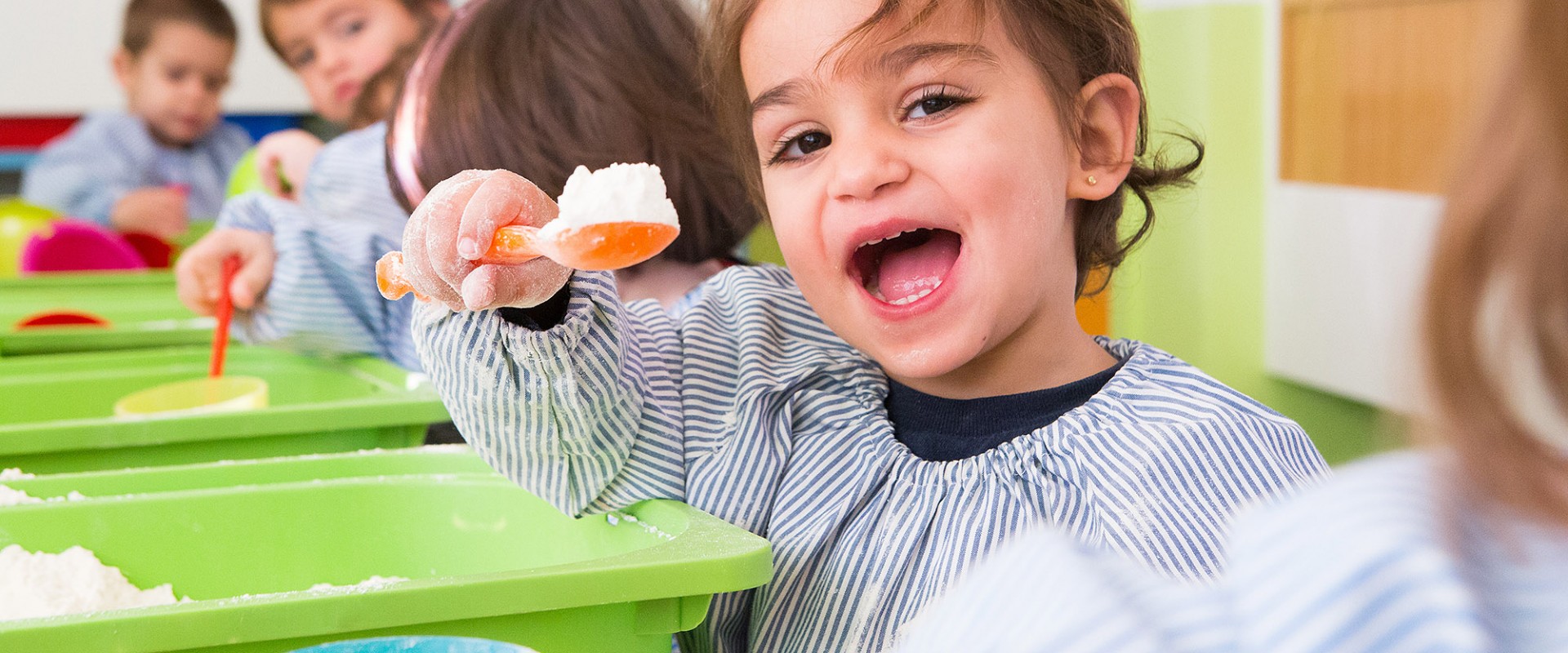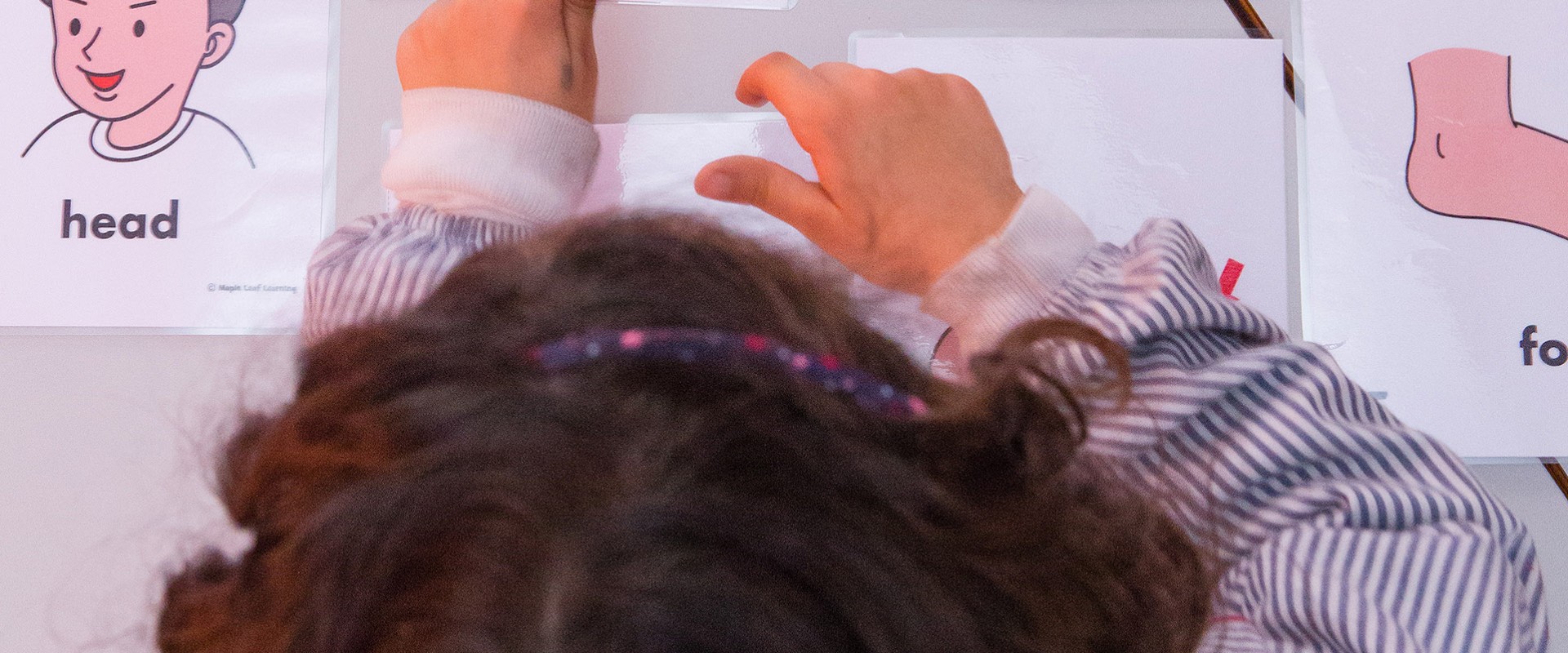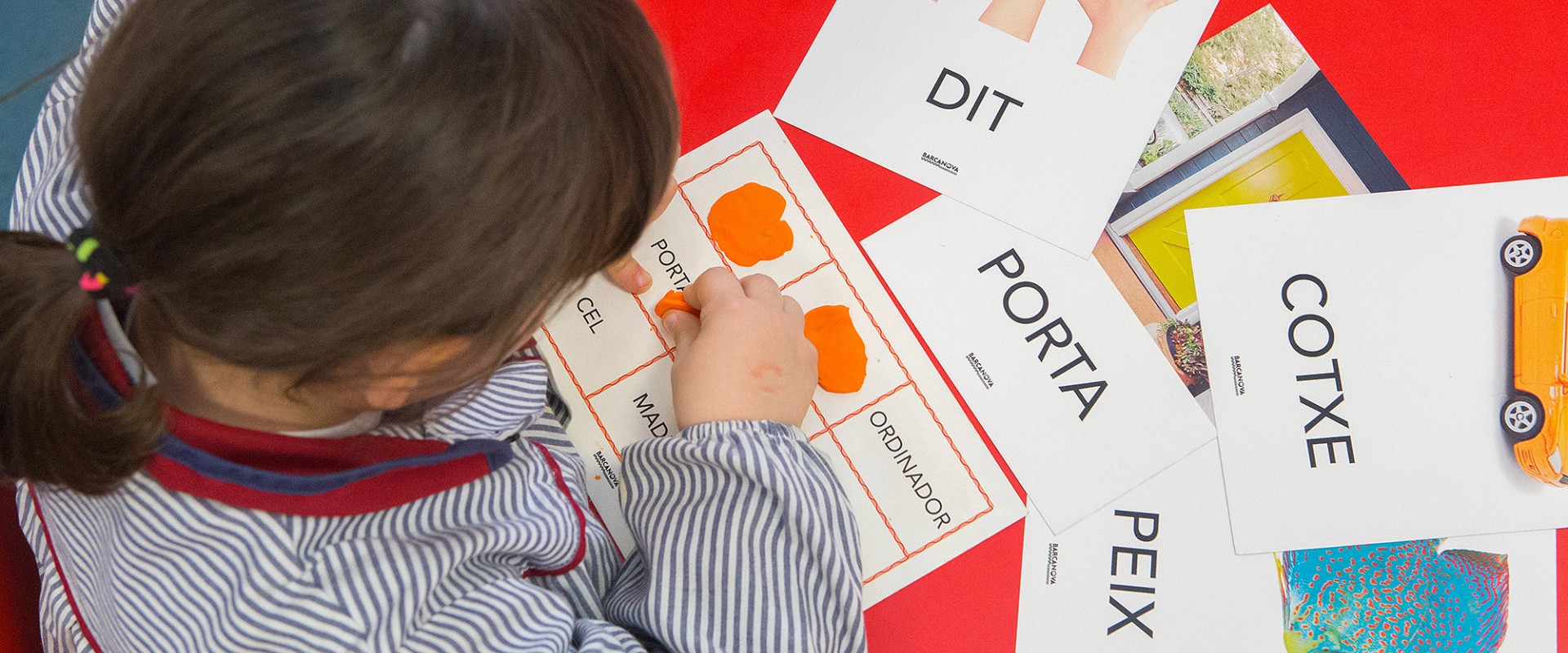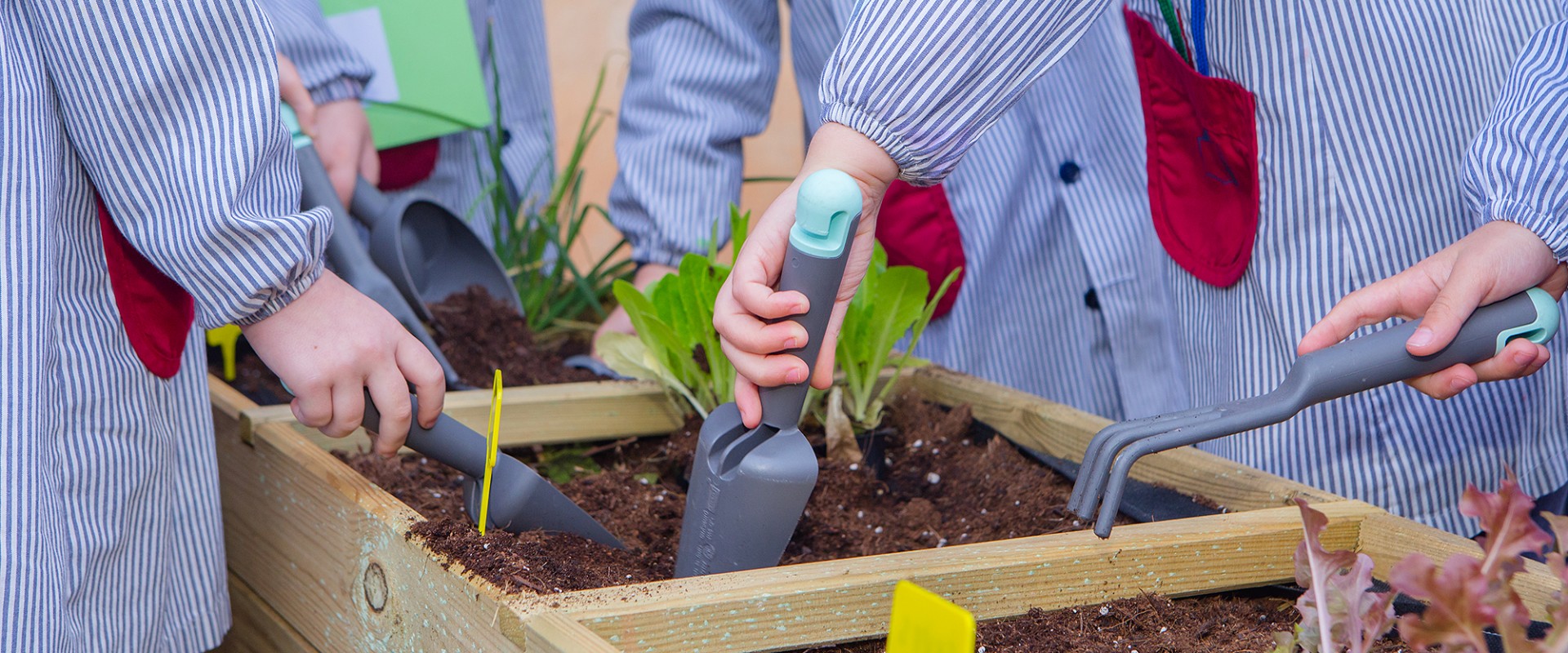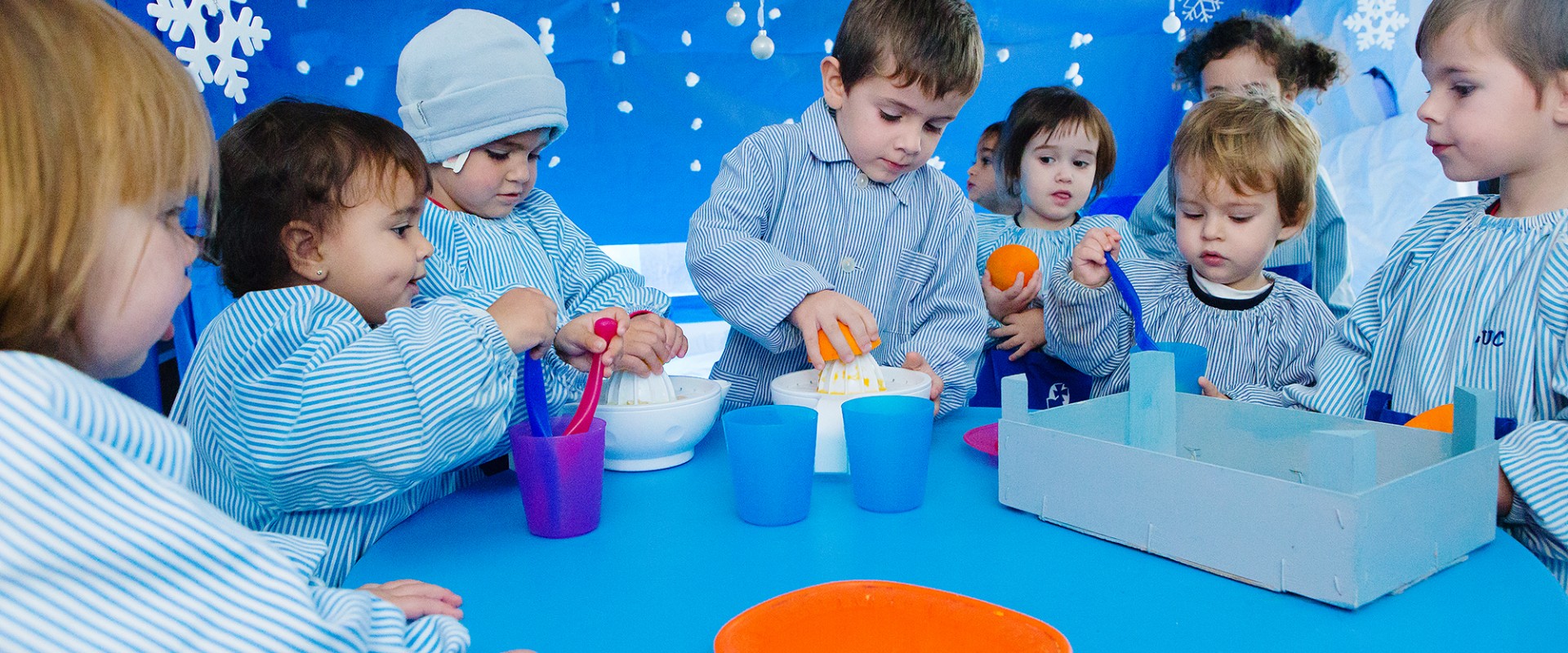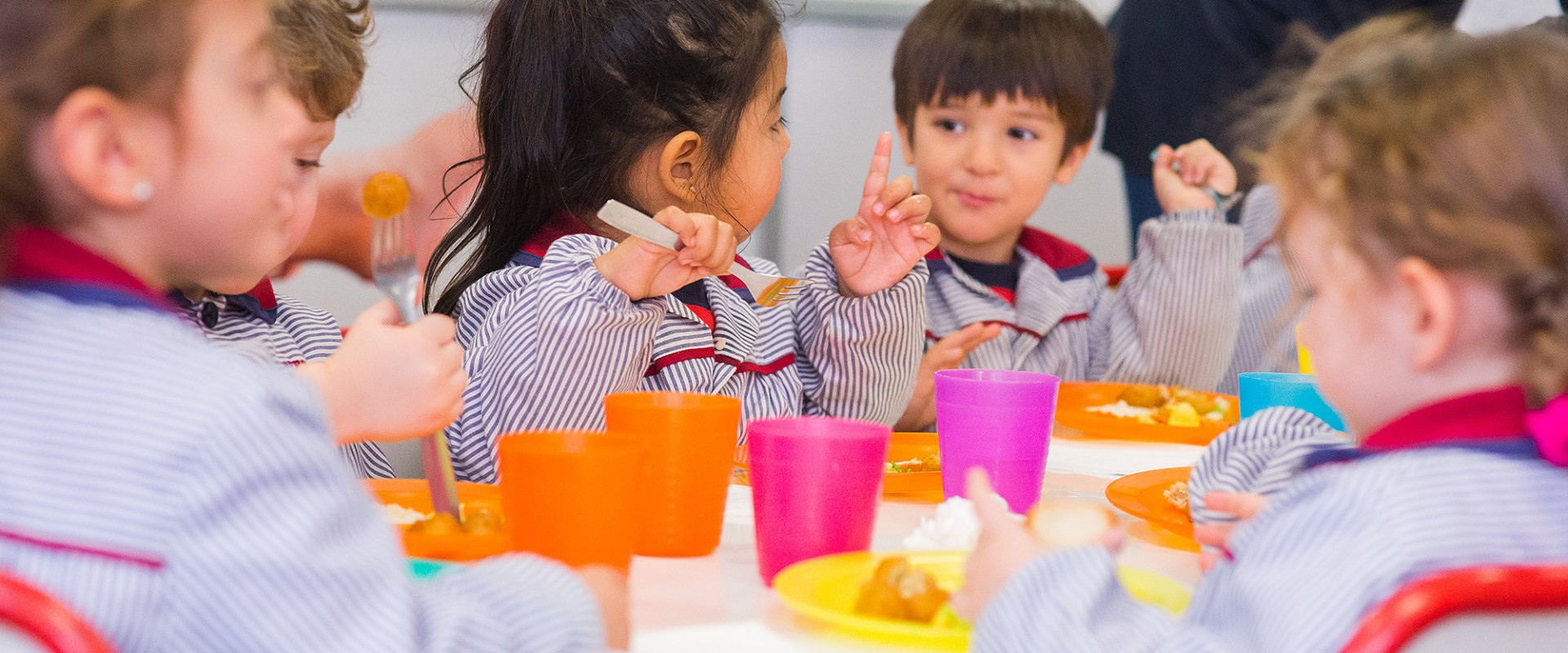Pre primary education- first cycle
CORPUS CHRISTI AND SANT JOSEP OBRER
Our children enjoy non-traditional lessons where they are free to develop their senses. They learn to play musical instruments in their classroom, use English as a communication language, they play and manipulate, take part in psychomotricity and emotional education workshops and… of course, they have lots of fun in our star initiative: the atelier.
Sensory atelier
A space for creation and experimentation using all five senses. Once a topic is chosen as a guiding line, the space is created. It is a carefully designed space, attractive for the children who feel prone to experiment, discover and create. Our sensory atelier has two main objectives: to offer the freedom to experience, discover and create and to learn to respect spaces and other people. The role of the teacher is one of an external observer, it does not take part in the children free discoveries.
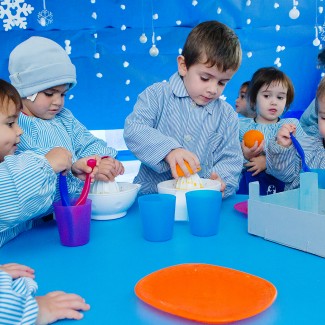
Experiencing and handling
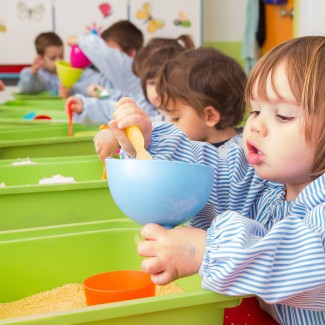
Learning through experiencing and handling allows our children to establish their knowledge based on their own experiences. Handling different materials is a useful way to enhance sense perception. Moreover, together with material experimentation improves their fine motor skills and the concentration capacity. Therefore, this is a way to learn by themselves.
English
The natural process for language acquisition is the basis on which we prepare our children to start learning English. Our methodology is founded on real-life experiences, games and practice, drawing upon the children’s own interests. Teaching is age-adapted and aims at stimulating the children’s natural curiosity.
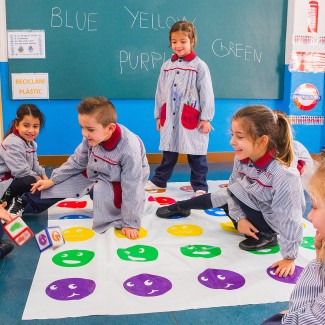
Plastic arts
Plastic expression is one of the most spontaneous and satisfactory activities for children. From a very young age they are thrilled by the thought of leaving their own mark on all kinds of support. The aim in a child’s first years is to let him enjoy plastic activities, which are seen as a game and a channel to express themselves freely.
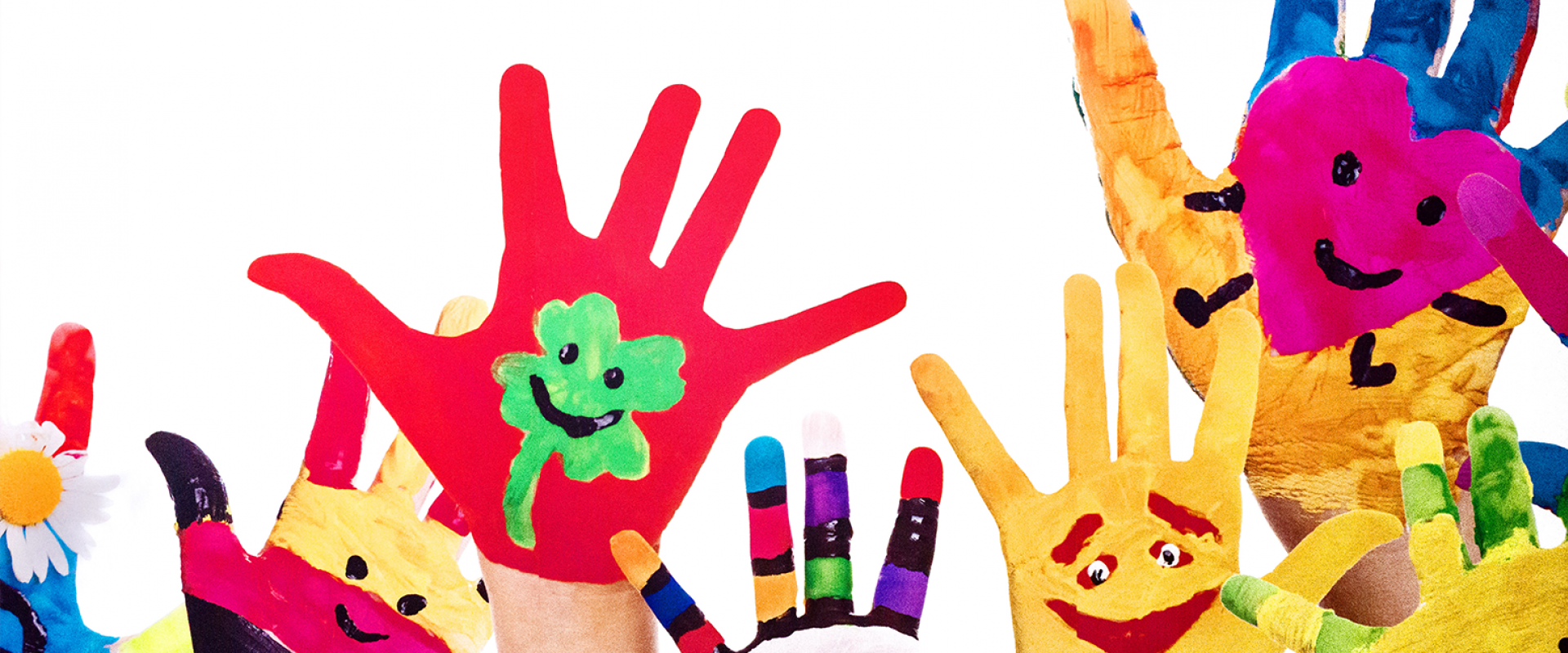
Games library
Symbolic playrooms fulfil our children’s need to meet their classmates, to relive, while playing, daily situations and to play different roles according to what they have previously observed in their natural environment.
Playrooms are spaces designed for recreational activities in which children must take part in a free, creative and imaginative way. These spaces foster communication and relationships and they are considered a first step toward socialization. Even young students need to share spaces, games, toys, to negotiate and establish behaviour and play rules.
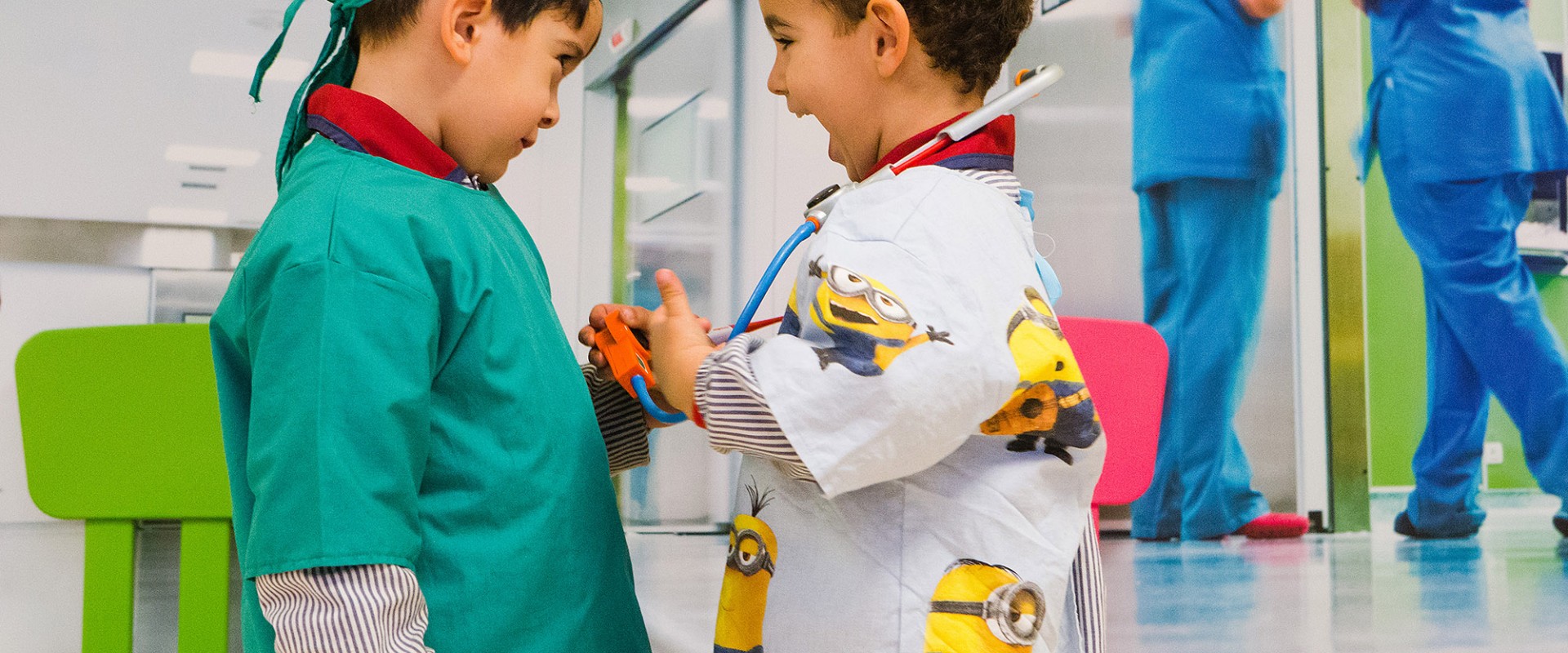
Emotional education
To identify and manage our emotions and to empathise with others’ are three basic skills that need to be trained at school. Developing these skills will allow children to handle conflicts and hardship that they will come across in life, both at a persona and professional level. It is essential to give children the opportunity to express themselves in an open yet respectful way at school, understanding emotions as something natural.
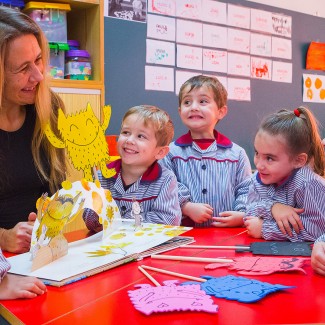
School meals
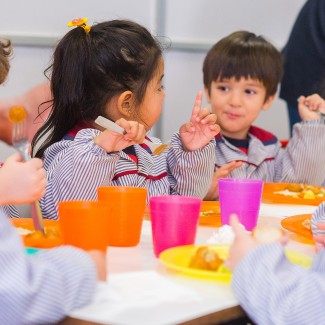
Good habits are paramount in developing young children’s character. One of such good habits is NUTRITION. It is essential that children have fixed places and times to eat, since this will help them establish a pattern and will stop them from having to eat any time of the day. Likewise, they have to start learning how to sit properly, to use cutlery, not to play with food, not to stand up before they have finished, an so on.
Music
First steps towards the universal language. Space where children experience, enjoy and learn the qualities of sound through their own body as a sound instrument, with their voice and with the manipulation of classical instruments and small percussion based on the song and the playful game.
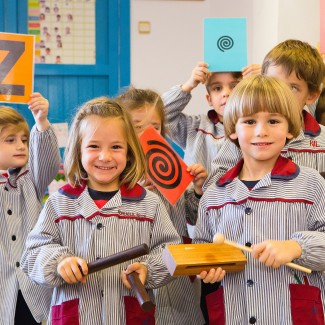
Projects
Teaching-learning strategy that allows our children to make sense of the questions and issues that they have about themselves and about the world they live in, giving them tools to handle different situations they will encounter throughout their lives. Working with projects help children to gain awareness not only of what they know, but also to develop the skills to move on in certain occasions.
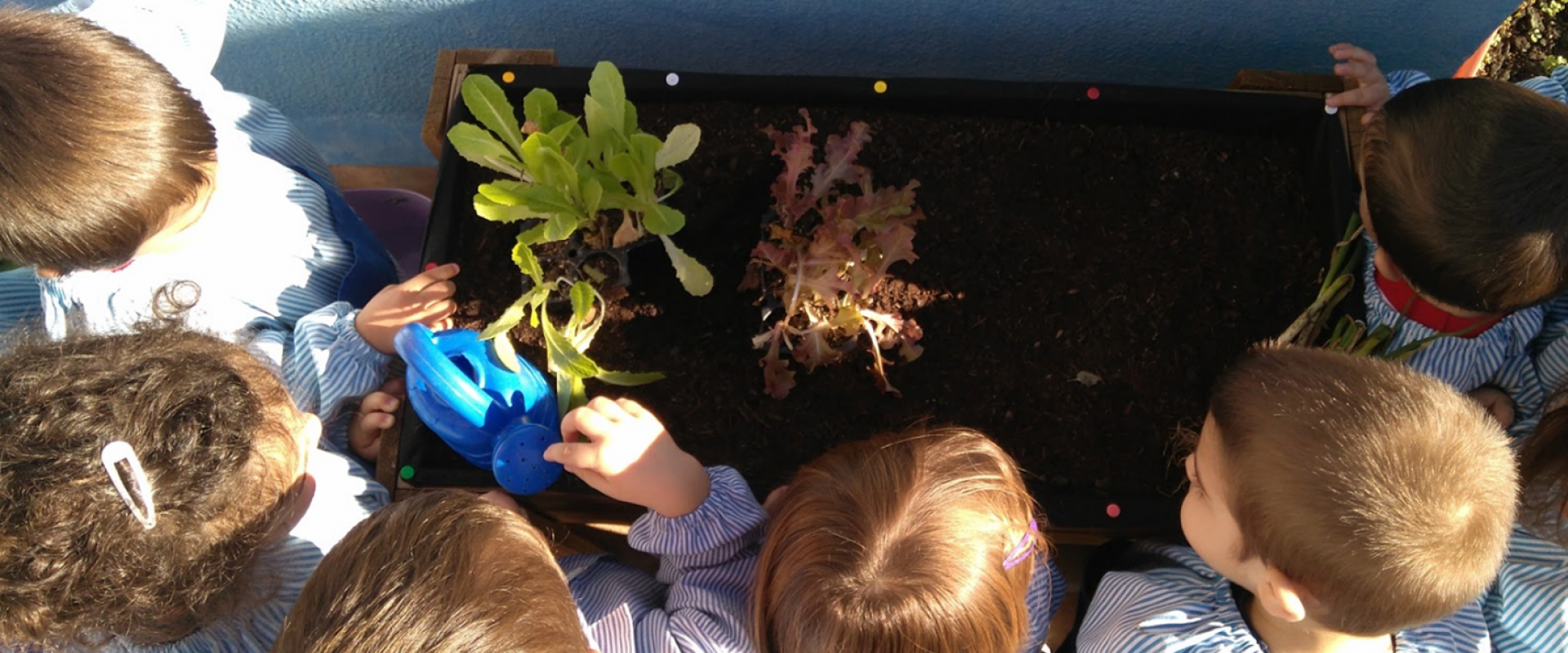
Psychomotricity
Psychomotricity training is extremely important for the physical, emotional and social development of our children. Through the exploration of new materials, they put our children’s creativity and imagination into action, helping them, at the same time, to improve their motor skills, such as coordination, balance and laterality. Psychomotricity sessions take place in a magic classrom: movement, mind, body, breathing, relationship, respect. Children grow, play and learn through movement.
